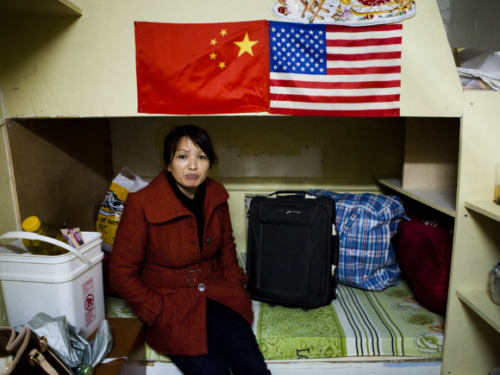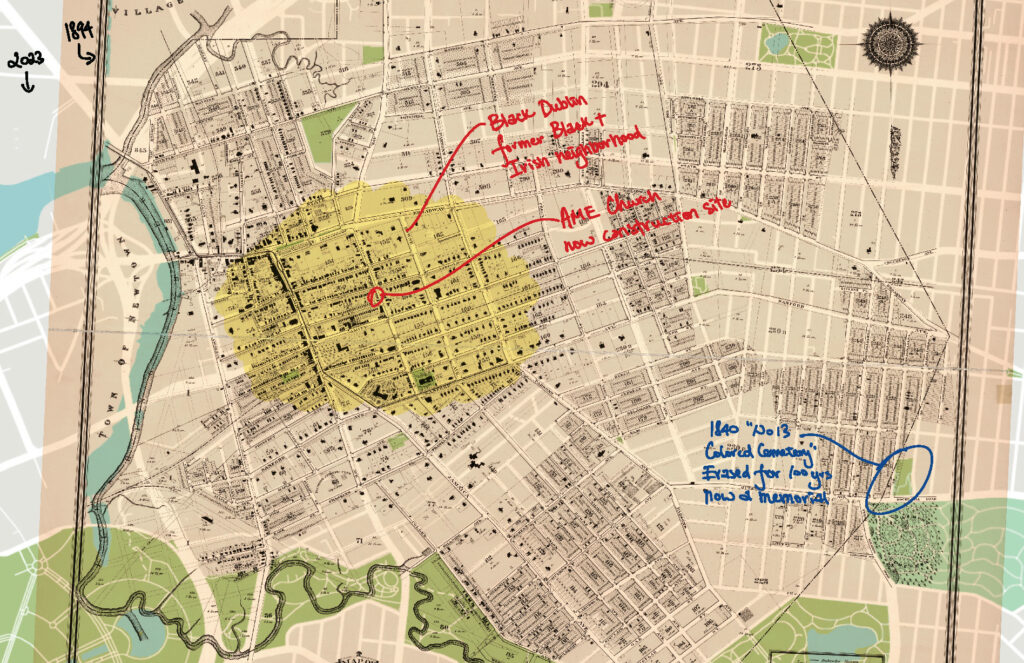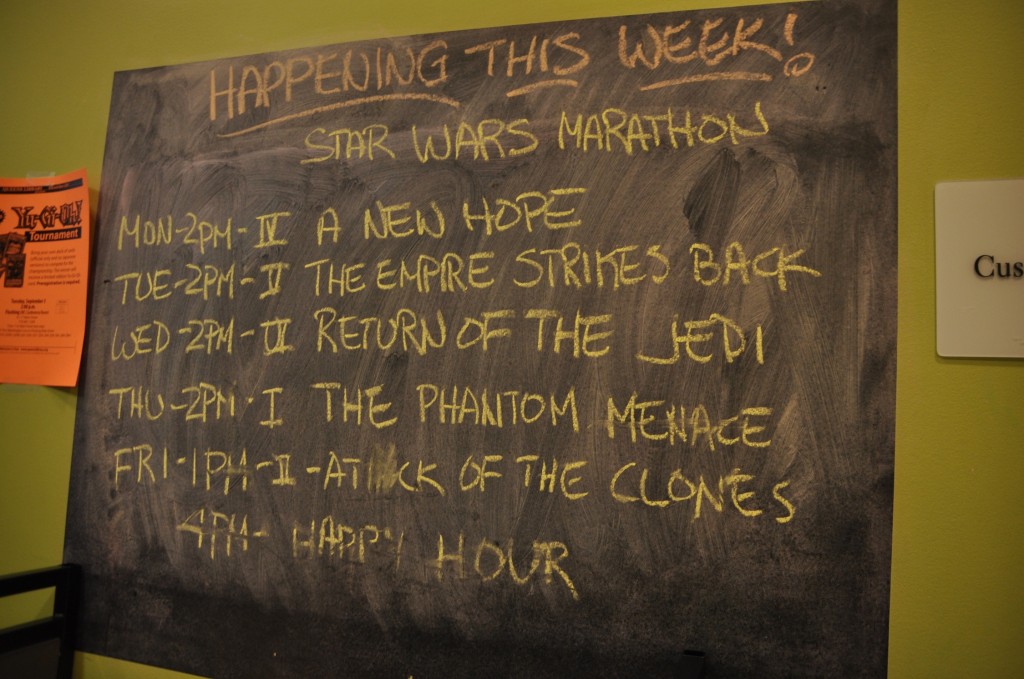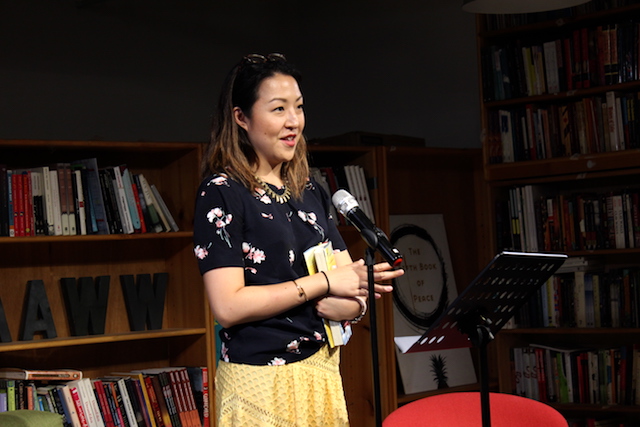In the wake of the end of DACA, we’re sharing poems, essays and stories written for and about undocumented immigrants.
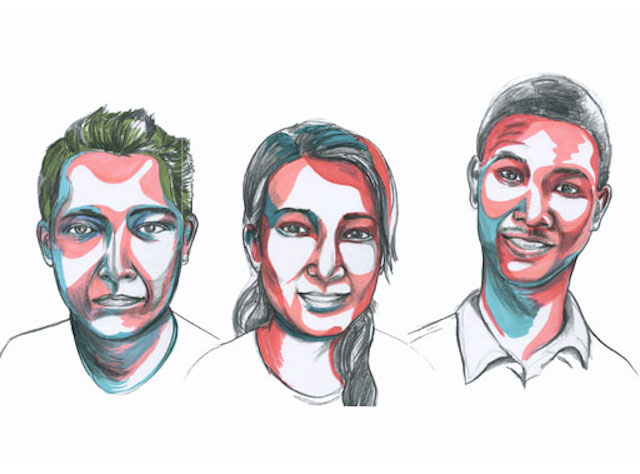
September 5, 2017
On Tuesday, Trump announced that DACA, which protects approximately 800,000 undocumented immigrants from deportation, will end. AAWW is committed to standing by undocumented communities, be they DACA recipients and DREAMers, their families, or all those whose lives are affected by this devastating news. One out of every seven Asian American immigrants is undocumented, and the end of DACA puts 1.6 million Asian Americans at risk of deportation. As an organization, we’re dedicated to the idea that Asian American stories deserve to be told. This includes the stories of the undocumented members of our community. Through our events, readings, and magazines, our writers have engaged with the experiences and struggles of undocumented communities in New York and all over the US. This includes counter-narrative zines written by undocumented Asian American women, the retelling of racist immigration history through poetry, and in-depth reported profiles of teenage DREAMers in Queens. We invite you to read these pieces and more, as we stand in resistance together.
The Margins
AMPLIFY(HER): Raising the Counter-Narrative
Amplify(HER) is a counter-narrative project, a collaboration between RAISE (Revolutionizing Asian American Immigrant Stories on the East Coast) and DRUM South Asian Organizing Center, featuring work by and for undocumented women of the Asian diaspora.
I felt misunderstood and cursed. I wished I could just apply to colleges like my classmates, but I could not. I remained hopeful, praying for a miracle but nothing happened. I was oblivious and self-hate blinded me from the opportunities that exist for undocumented students. I was not myself. I was afraid of my own identity. I began to ponder; I am a positive, caring, supportive friend and student in my school community, yet I had become my own worst enemy.
I decided to rewrite my narrative. I am not going to let a label set my boundaries.
Tough State: Jeff Biggers on the Arizonification of America by Michelle Chen
In 2012 Jeff Biggers spoke with Culturestrike editor Michelle Chen about his book State Out of the Union, which reports on and contextualizes the rise of anti-immigrant extremism in Arizona. Many of the key figures in his book, including Sheriff Joe Arpaio and the politicians behind SB 1070, considered to be the harshest anti-immigrant measure ever passed in the state, have reemerged under the Trump administration.
According to the most recent Department of Homeland Security reports, apprehension rates of undocumented immigrants are at their lowest since I arrived in 1970; an analysis of borderland data found that “rates of violent crime along the U.S.-Mexico border have been falling for years—even before the U.S. security buildup.” Those are the facts. But they are meaningless for politicians like [then-Arizona state Senator Russell] Pearce, who has based his entire career on harboring fear of immigrants…

To an Unknown Passenger by Phinder Dulai
Phinder Dulai’s poetry collection dreams/arteries draws upon the historical records of the Komagata Maru, a steamship boarded by 376 migrants from Punjab in the hopes of migrating to Canada in 1914. Denied entry upon arrival despite being British subjects, the passengers were subjected to racist exclusionary laws and were forced to live on the docked vessel for two months before finally being sent back to India. We excerpted three of Dulai’s poems and you can also watch him read from the book on AAWW TV.
my hulled hands crash against the tide —————
to the unloved I will offer
a part of me
in hope my wards will be made completefor another life
—————while my indentured life escapes me
Immigration in A by Kristin Chang
Appropriating terms from the Department of Homeland Security’s immigration dictionary, Kristin Chang grapples with issues of citizenship, statelessness and Asian American aliens in this prose poem.
The alien may prove to you, but you must also prove to her. Name all of your friends who are Asian. Name the first line of the Constitution, an Amendment if you can. Name one thing she eats for breakfast. Name what timezone she was born in. Name the church you want to marry her in. Name the names of children you will have with her, the ones with her genes but at least your citizenship. Name all the times you have taken her body, taken from it, eaten. Name all the countries along the equator. Name all the countries that contain her dead. Name all the ways she could die. Include yourself.
AAWW TV: Family vs. Immigration
Shanthi Sekaran’s new novel Lucky Boy tells the story of a mother and son split apart by immigration enforcement. She spoke with Race Forward’s Rinku Sen and Kavita Das about the devastating impact that American immigration policy has on families.
Open City
The Right to Stay by Thanu Yakupitiyage
Jong-Min You didn’t know he was undocumented until he was in high school. Ten years later he publicly revealed his immigration status and has advocated for the rights of others like him. At the time of this profile from 2016, he was working with community organizations to fight for an expansion of DACA.
Jong-Min came out as undocumented in 2009. I asked him why he finally decided to come out of the shadows. He said it was a combination of things–he saw more and more undocumented people become vocal about their immigration statuses, and he had also joined several Facebook groups on immigration and saw people posting about the DREAM Act and immigration reform. He’d also heard of several cases of young undocumented people taking their lives because they were so depressed at their lack of prospects in the U.S. “Kids were committing suicide… I couldn’t just sit around and watch.”
Julio Salgado and Favianna Rodriquez for Culturestrike
DREAMer and UndocuQueer Julio Salgado talks with CultureStrike coordinator Favianna Rodriguez about coming out of the closet twice—once as gay, and once as undocumented—at a June 2012 event at the La Pena Cultural Center.
The Tenement Life: From Jacob Riis to Beyond by Kyla Cheung
81 Bowery was the Chinatown home for many Chinese immigrant workers, most of whom are undocumented. Photographer Annie Ling documented the stories of the residents who lived in the overcrowded tenement, and the community they formed against the threat of eviction.
The Fight to Not Be #Deported2Death by Jai Dulani
Sohel Ali Hussain fled Bangladesh under threat of political violence, only to be imprisoned in an immigrant detention center in the U.S. Now free, Hussain works with local advocacy groups to share the stories of asylum seekers like himself, and combat the unjust treatment of detainees in America.
Kazi Fouzia, a community organizer for DRUM, spoke at the symbolic funeral about the root causes of migration, “If we think why people cross border, why people come this country, my answer is: nobody makes a choice to migrate to another country, nobody wants to cross border. The situation, the condition, politically unjust, pushes us to move to another country. We are the victims of capitalism. We are the victims of an unjust political situation back home.”
Election Day in Flushing, Queens: From the DREAM Voter to the Poll Workers’ Dream of Decent Work by Sukjong Hong
An in-depth look at the political landscape in Flushing, Queens during the 2012 elections, which marked the first time that many voters, regardless of their own immigration status, took the pledge to be DREAM voters, supporting candidates with progressive immigration views.
Park explained, “This DREAM voter pledge was for me one way to speak for myself and tell people, this is what we need, and I really want you to make sure that you not just vote, but speak on behalf of me. That’s a very empowering experience for me and a lot of other people.”

New DREAMs
In the summer of 2012 then-President Obama announced that his administration would stop deporting undocumented immigrants who met the specifications of the DREAM act. Soon after, applications for the administration’s new immigration policy, DACA, opened up. Open City fellows E. Tammy Kim, Rishi Nath and Sukjong Hong spoke with undocumented New Yorkers whose lives were impacted by the policies for the magazine. Read the four-part series below.
Lis, 24 by E. Tammy Kim
“This is what I would like to say to all those people who are against undocumented kids: if I would have known that this would have happened to me, I wouldn’t have decided to come here. Because who would want to live in a country where you cannot work in your field and you always feel like you’re hiding?”
Vish and Dev: Undocumented in Richmond Hill by Rishi Nath
Raj doused himself with whiskey and looked at me. “He paid twenty thousand to come here. He has to work and doesn’t go to school at all. I didn’t have to do that.” As he spoke loudly, openly, Gurdeep implored Raj to stop. The mood at the table had dampened. Clutching my cold, bundled chapaatis, I rode home carefully through the wet, evening streets. I moved like I had rocks in my pockets, heavy with a secret.
‘We Are Not Illegal’ by Sukjong Hong
The students, teaming up with Multi Squad, another student group, took this pledge to the school cafeteria. Some people were apathetic, and some were afraid it would get them into trouble, the students said. “What did you tell those who were afraid to sign it?” I asked. Seth, 19, said, “We told them that it would benefit all of us, and that their name would stay in the community.”
“We said, ‘Don’t be afraid. We are not alone,’” added Erica.
Jeff, 20 by E. Tammy Kim
Still, he said, “I’ve been meeting a lot more DREAMers, and they’ve been very excited about deferred action. They are very grateful that they can now apply for work permits, get driver’s licenses, travel.” Some of his friends, who’d set deadlines to return to China, Korea, and other “home countries” in the absence of immigration reform, have now opted for a wait-and-see approach. It’s a “subtle shift,” Jeff said, but “things feel a little more optimistic.”

